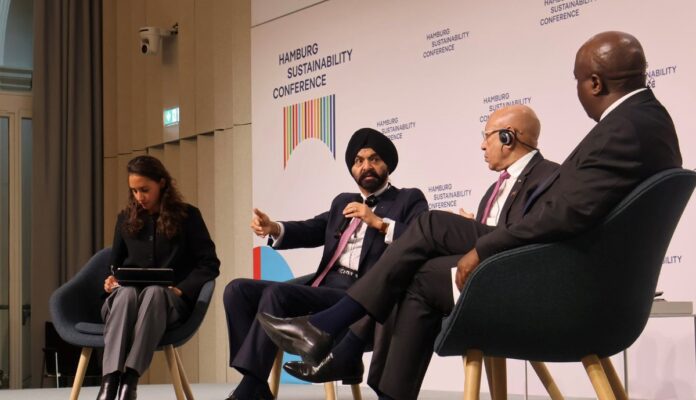The recent increase in Nigeria’s minimum wage will only benefit a small segment of the population, according to a new report by the World Bank.
The report reveals that only 4.1% of working-age Nigerians will see a direct impact from this wage hike. Alex Sienaert, the World Bank’s lead economist for Nigeria, shared these findings during the launch of the Nigeria Development Update (NDU) report in Abuja on Thursday.
Sienaert stated that while the minimum wage increase is a significant move, its effect will be limited. He emphasized that the hike primarily impacts formal wage earners, which are a minority in the country.
“The Federal Government of Nigeria increased the minimum wage, which will affect only a small share of the population,” he explained. “Raising the minimum wage directly affects only 4.1% of working-age Nigerians.”
The World Bank report underscores the importance of not just creating jobs but also ensuring that these jobs are productive. Sienaert stressed that addressing poverty in Nigeria requires more than merely expanding employment opportunities.
“Being employed, however, is no guarantee of being able to escape poverty,” he stated. “Many jobs are not productive and therefore not remunerative enough to afford a life beyond poverty.”
The report emphasizes the necessity of creating jobs that utilize Nigeria’s growing population effectively. It highlights the potential for a “demographic dividend,” which refers to the economic growth that can result from a shift in a population’s age structure.
While creating jobs is crucial for inclusive growth, the report argues that these jobs must be productive. It warns that policies focused solely on formal wage earners often bypass the most vulnerable populations.
The World Bank report notes that many policy initiatives currently only cover formal wage jobs, such as those in the public sector. These policies often overlook the poorest workers in the country.
“Policy initiatives that cover only highly-formalized wage jobs – including policies focused on public sector workers and minimum wage legislation – may not reach many of Nigeria’s poorest workers directly,” the report stated.
It further explained that the majority of employed Nigerians, especially those from poorer households, do not hold formal wage jobs. This significantly limits the effectiveness of policies aimed at wage workers.
“Public sector wage jobs are not only rare and disproportionately occupied by comparatively better-off Nigerians; they also pay significantly more than private sector jobs,” the report added.
One major issue highlighted in the report is the enforcement of minimum wage laws. Approximately one-third of private sector employees earn less than the official minimum wage.
“Minimum wage legislation may not directly reach the poorest workers because they do not hold wage jobs,” the report stated. “Around a third of private sector wage earners receive less than the minimum wage anyway, demonstrating that enforcement is imperfect.”
The report also raises concerns about the financial implications of increasing wages and public sector pay. It suggests that such moves could strain government finances, emphasizing the need for broader employment policies.
“Broader employment policies are needed to reduce poverty effectively,” the report cautioned.

